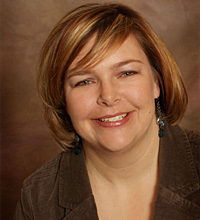Game On – All together now!
Here in the United States, the National Basketball Association (NBA) Finals ended in June. The Finals are a best of seven series and the San Antonio Spurs won in five games, three of which were lopsided. The Finals were a blowout! A drubbing! And they were a solid example of how team play overcame individual greatness.
The Miami Heat – the squad that experienced that blowout – is comprised of three stars, some fill-in players and a young coach. Just one year ago, this same team WON the NBA Finals. Against…the San Antonio Spurs!
How did the Spurs win the NBA Championship – in imposing fashion – after losing it just one year ago? Team play. “Depth matters in basketball, and unselfishness and teamwork and great coaching matter, too,” said Michael Rosenberg of Sports Illustrated.
The Spurs won as their bench outscored the Heat’s bench 188-109. Their depth was critical. The Spurs won by unselfishly passing the ball. They passed 106 times more than the Heat in each of Games 3 and 4. However, it turns out that NBA teams that pass more aren’t all winners. The Spurs’ superior coaching allowed them to take advantage of that passing. Their head coach, Gregg Popovich, has won five NBA titles with the Spurs, leading that team for 18 years and putting together the most consecutive winning seasons of any NBA coach – 17.
Depth, unselfishness and great coaching contributed to the San Antonio Spurs’ NBA Championship this year. Sports provide great models for studying what makes teams work. And… we can apply some of these principles of sport to the creation of effective teams of family business advisors.
Why a Team?
Teams of advisors – teams that exhibit depth, unselfishness and great coaching – deliver the best results for family businesses. There is some evidence for this in the literature[1]. However, the statement is also supported by both the very nature of the family businesses served and by the needs of the advisors themselves.
Family businesses are complex. Their complexity stems from three systems inherent in family business – family, ownership and business. As businesses and families grow and these three systems become more distinct, stakeholders grow in number. Stakeholder groups can “boom.” In one family, the stakeholder group will go from 10 to 44 – a 340% increase – in one generation. With a much larger group of stakeholders, variation in perspectives, values and motivations expands. This growth truly is exponential! Effectively meeting the needs of a diversified set of stakeholders or constituents calls for an equally diverse advisory approach. It’s unlikely that one advisor could meet the needs of 44 constituents and the complex systems they embody. A team of advisors, however, are much more likely to succeed.
Now, let’s turn to that team of advisors. Family businesses are commonly advised on topics that include effective communication, collaboration and professional development. Working with other advisors to provide the most effective processes and solutions to family businesses requires high competence in the skills of communication and collaboration. In addition, regularly working with a team of advisors provides opportunities for professional growth. It seems quite natural that as advisors, we would “practice what we preach” to our clients. At the least, it saves us from hypocrisy. At best, it sharpens our saw and provides us first-hand practical experience to share with clients.
Building a Team
Teams that exhibit depth, unselfishness and great coaching have demonstrated championship levels of success in the NBA. These characteristics are also exhibited by the best teams of family business advisors. Let’s call this team of all-star family business advisors the Genograms.
For the Spurs, depth means they have a highly productive group of players that can substitute for the starting five. Within the Genograms, depth is demonstrated in two ways.
First and most obvious, the Genograms have expertise that meets the families’ needs. The Spurs have a point guard, a center and lots of great shooters. The Genograms include experts in law, tax, facilitation, conflict resolution and organizational development, to name just a few. Multiple skill sets can reside in one advisor. And the Genograms don’t utilize every skill set with each client. However, they can pull from a deep bench of skill sets when they encounter a need. And note that the skill sets include both content experts and process experts. Both approaches are needed in the work with every family
Second, the Genograms encompass an effective mix of specialists and generalists. Regulation, research and competition put a premium on narrow, deep specialist skills. For example, a family business might not just need a tax expert; they may need a tax expert on manufacturing business alliances in the Chinese province of Shenzhen. Once this expert’s specific content is delivered, having a generalist weigh in allows the content to be provided in context. For example, once the tax implications of creating an alliance with a manufacturer in Shenzhen are understood, the generalist helps fit those implications within the businesses’ priorities, long-range plan and resource availability.
Depth for the Genograms means providing the right content at the right time through their specialists, and then putting that content in context with their generalists.
For the Spurs, unselfishness means passing. Passing to another player is an implicit acknowledgement of competence. Passing means trusting that the receiver will do something productive with the ball. For the Genograms, the ball is the client. Recognizing when another team member has the skill set, the chemistry or experience to better accomplish the client’s goals and “passing” the client along to that advisor’s care demonstrates unselfishness in family business consulting.
At its core, unselfishness means serving the client first, before your own needs or those of your own organization. That does not mean being taken advantage of. Rather, the Genograms focus on clearly understanding and articulating the client’s goals, concerns and priorities and then helping the client determine how best to meet those needs. The Genograms have the self-awareness and humility to declare that there may be other advisors that better meet the client’s needs.
Unselfishness can be tough when an advisor particularly enjoys the client family. I recently began collaborating with a colleague on a client family whom I have worked with for 15 years. I have watched the successors graduate from high school, college, get married and join the business. The client will have a high need for my colleague’s expertise over the next few years – that’s why I introduced him. However, it has been very hard to back away from the relationship that I enjoy deeply even though it was the best move for the client.
Unselfishness for the Genograms means listening closely to client needs and, as required, stepping out of the way so those needs can be met.
For the Spurs, great coaching means guidance from a long-tenured, successful team leader and mentor. For the Genograms, great coaching means creating clear rules of engagement and acknowledging the team leader.
The Genograms invest time at the beginning of a client relationship to clearly establish advisor roles and responsibilities. The Genograms discuss what role each of the advisors play and how the client will be billed.
The Genogram’s team leader is a “player-coach” because she both does the work and guides the team. However, the Genogram team leader does not let herself get caught up in doing the work and forget to invest time in coordinating advisor input and advice.
In my practice, a new client has two long-time trusted advisors who have never discussed their mutual client to coordinate their advice. I originated a call to introduce myself, gather their input and model teamwork for these valuable sole practitioners. As the newcomer, I was able to ask a lot of “dumb” questions that allowed me to quickly gather deep client insights. It also allowed our team to strategize together on how best to move the family and business toward their stated goals.
Great teams ensure input is consistent across advisors and convenient to implement. They make clients’ lives easier.
The Genograms may never be crowned as a true championship team…that’s where the analogy with the Spurs breaks down. But by teaming, family business advisors can create better outcomes for family businesses and produce higher job satisfaction for the advisors themselves.
[1] Su, Emma and Dou, Junsheng. (2013). How Does Knowledge Sharing Among Advisors From Different Disciplines Affect the Quality of the Services Provided to the Family Business Client? An Investigation From the Family Business Advisor’s Perspective. Family Business Review, 26(3), 256-270.
Some of the concepts in this article originated from the policy “Protocols for Shared Consulting Work” authored by familybusiness.ag, a family business consulting peer group. These concepts will be featured in a panel discussion at this fall’s FFI conference. The session is on Thursday from 11-12:30 and is titled, conveniently, “Protocols for Shared Consulting Work.”
About the contributor:
 Barbara Dartt, a founding partner of GROW: The Family Business Advisors in Kalamazoo, MI, assists business owners with financial analysis, business succession, operational and long-term planning as well as other opportunities and challenges unique to family-owned businesses. She holds the Certificate in Family Business Advising and will become a Fellow at the 2014 Global Conference. Barb can be reached at barb.dartt@growthefamily.biz.
Barbara Dartt, a founding partner of GROW: The Family Business Advisors in Kalamazoo, MI, assists business owners with financial analysis, business succession, operational and long-term planning as well as other opportunities and challenges unique to family-owned businesses. She holds the Certificate in Family Business Advising and will become a Fellow at the 2014 Global Conference. Barb can be reached at barb.dartt@growthefamily.biz.




